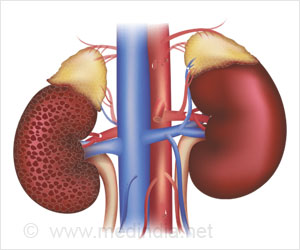More than half of the chickens sold in UK shops were contaminated with Super bugs. The study shows that immediate attention is to given to reduce
More than half of the chickens sold in UK shops were contaminated with Super bugs. The study shows that immediate attention is to given to reduce the indiscriminate use of antibiotics in animals and to protect the spread of antibiotic resistant bacteria from farms into people.
Super bugs are multiple drug resistant bacteria. British grown chickens analyzed were found to be contaminated with multi-drug resistant E.coli which is immune to the effects of three or more antibiotics. The chickens were found to contain Trimethoprim drug resistant bacteria E.coli. Trimethoprim drug is used to treat bladder infections.The Health Protection Agency scientists testing the meat also found 12 chickens had antibiotic resistant Campylobacter and Vancomycin Resistant Enteroccci, were in 1 in 25 of the samples, although more tests would be needed to confirm the exact type of the bug found. The survey's results could partly explain a rise in the number of women whose bladder infections did not respond to standard treatments, a medical expert told the program.
According to the latest figures, British animals consume 15 tones of Trimethoprim a year. However, the Health Protection Agency says the main reason E.coli has become resistant to the drugs we use to treat bladder infections is the high use of antibiotics in humans.
Bacteria in chicken is killed if the meat is cooked properly and hygienically but one in three people in the UK get food poisoning each year - and the most common cause of food poisoning is the bug Campylobacter.
Dr Caroline Willis, who led the team testing the chickens, said: "In terms of antibiotic resistance, about a quarter of the Campylobacters that we found were resistant to one or other of the antibiotics commonly used to treat it." Vancomycin Resistant Enterocococci in chickens can lead to resistant organisms in the human gut, leading to food poisoning and gastrointestinal trouble.
Spokesman Darren Pearson said: "There's overwhelming evidence that the main reason for antibiotic resistance in humans is because of the antibiotics prescribed for us rather than animals. “It doesn't mean to say it's not possible for antibiotic resistance to be transferred from animals to man but I think you've got to focus on where the main concern lies."
Advertisements






